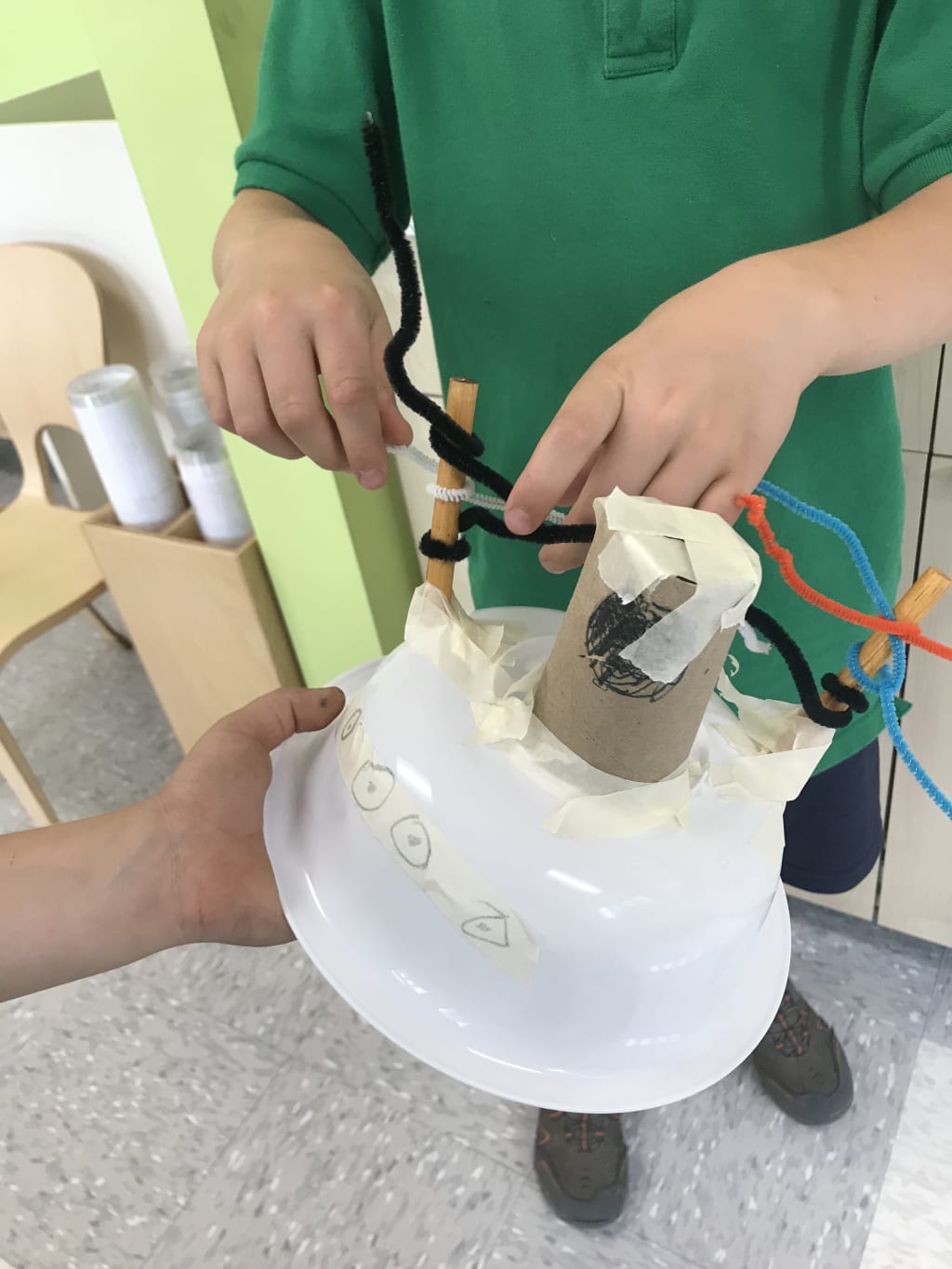Why All Educators Should Do Personal Development
For you and for them.

Recently I was working with a group of young students who were, as students do, resisting doing the task that I, the educator, wanted them to. I began to enter into the familiar dance that anyone who has ever worked with children likely knows well: Kids moving around the room, talking to friends, asking unrelated questions, raising their hand and telling long-winded, boring stories about their friend Carley’s pet hamster who pooped on the floor. Everybody laughs but you—because let's face it kid, your story sucks and I see what you’re trying to do here.
I notice my voice becoming louder, higher-pitched and short. I feel the frustration rising, realizing that I was very quickly losing control. The agenda I walked in with was being trampled on by Henry’s incessant pointing to the poster on the wall saying “why is Mike Wazouski looking at us?” After several failed attempts to redirect, I stopped and took one deep breath.
I felt the energy in the room settle, just slightly. Enough for the kids, and myself, to relax a little bit. And in that moment, my perspective shifted, as did my ability to actually listen to the kids. Listen to what was beneath their resistance. They were telling me that they needed to move, they needed freedom, they needed to be heard and they needed to have some time without an agenda. Even just for a moment. So I gave it to them.
Were they perfectly behaved and totally willing to do whatever I wanted them to after that? Hell no. Kids aren’t designed to be compliant and “good” all the time. And in fact, the more we demand that of them, the less they learn how to self-regulate, self-correct and make positive choices. We learn from our mistakes and asking kids to be “good” all the time eliminates natural consequences, while simultaneously creating an environment where struggle and rebellion run rampant. I will say, however, they were much less resistant and much happier post-teacher perspective shift, and so was I. The energy in the room changed from frustration to fun. We were all able to laugh.
And somehow, magically, everything on the agenda got accomplished.
I have seen this occur time and time again in my work with children. I’ve seen it in classrooms around the world. I’ve seen it with children and families in crisis, with teenagers, and with parents. Taking a moment to become present (which, by the way, requires one deep breath, and a willingness to be exactly where you are, as you are), changes the dynamic of any social interaction. It is what allows us to really listen to, and thus connect with the people around us. It also literally changes the environment such that the struggle is removed and the space for learning is available. And it is a practice.
It is interesting to me, though, that in all of my educational training and professional development over the years, nobody has ever talked to me about this. Nobody talks about how I, as a human person, can change the way I show up in my work and thus improve the quality of work I do. The state of my mind, my body and my spirit are not only relevant to how I do my work—they are foundational.
I believe this to be true in any line of work, but especially so when working with people and even more so when working with young people. Why? Because kids know. They are super intuitive and they feel your frustration, your agenda, your anger or stress, and the only logical way for a child to respond to that is to resist.
Our brains require a low-stress environment in order to learn. We also need to have autonomy over our learning. In all my years of teaching, the best thing that I have cultivated professionally has been my ability to become present with my students, listen to what they are really trying to tell me, and be willing to respond to their needs in the moment. This requires a willingness on my part to do something that feels counterintuitive, which is to release “control.” I put “control” in quotation marks because let's be honest, in the scenario described above, I never really had control. And yes, I could have raised my voice and attempted to intimidate the students into behaving the way I wanted them to, but that technique only fuels the cycle of stress, frustration and student resistance in the long run.
The techniques and practices I have found to be the most game-changing in terms of classroom management, have been my own personal and spiritual development practices. From the most basic of deep-breathing, to the more advanced ability to read the energy of the room, to learning to be responsible for, and thus shift my own, internal state. These skills, as far as I can see, are not taught in teacher training courses and it’s about time they are.







Comments (1)
I agree with this 💯! It’s so important to understand the self before trying to understand others let alone teach others!